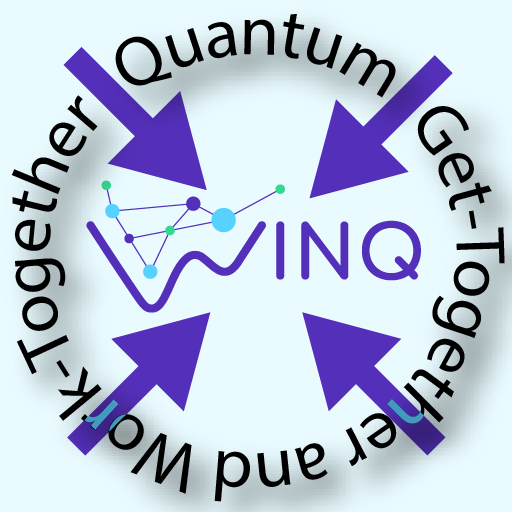Get together and hack problems at the frontiers of quantum science!
This three-day workshop brings together early career researchers from theory and experiment and aims to create new connections and to collaboratively develop new research ideas in three main topic areas. The workshop draws inspiration from hackathons and puts collaborative group work into its center. At the workshop, the participants form mixed teams and hack a major open problem, introduced by invited experts, who will acts as mentors, at the workshop.
The goal of the workshop is to provide opportunities for networking with other early-career scientists and for forming long-term collaborations.
The three main topic areas and mentors are:
- Quantum measurement and control with Elsi-Mari Borrelli (Algorithmiq) and Gheorghe-Sorin Paraoanu (Aalto University)
- Quantum-enhanced sensing with Matteo Paris (University of Milano) and James Millen (King's College London)
- Quantum computing with Jens Eisert (Freie Universität Berlin) and Simone Gasparinetti (Chalmers University of Technology)
Workshop structure
The workshop is structured as follows:
- First day: Overview lectures on each topic, followed by a Q&A and a poster session with refreshments.
- Second day: Participants form teams and work on proposals for how to tackle the problems, guided by the lecturers, followed by a panel discussion with the lecturers.
- Third day: Teams present their proposals and receive feedback.
Throughout all workshop stages, the participants can interact with the invited senior experts and benefit from their input, mentorship and feedback. For each of the topics, one theorist and one experimentalist have been invited, acting as lecturers, advisers and reviewers. At the start of the workshop, they review major open problems from their fields. The participants then form teams and try to address these problems. At the end of the workshop, the teams will pitch their ideas as a research proposal and receive feedback from the mentors.
To get to know each other's research and to help form the teams, the participants are encouraged to present a poster during the first day.
Schedule
Times | Monday | Tuesday | Wednesday |
08:30-09:00 | Registration and coffee | Coffee | Coffee |
9:00-10:00 | Lecture - Measurement and Control (Borrelli) | Teamwork | Participant Presentations |
10:00-10:30 | Coffee | Coffee | Coffee |
10:30-11:30 | Lecture - Measurement and Control (Paraoanu) | Teamwork | Participant Presentations |
| 11:30- 12:30 | Lecture - Quantum sensing (Paris) | ||
12:30-13:30 | Lunch | Lunch | Lunch |
13:30-14:30 | Lecture - Quantum Sensing (Millen) | Teamwork | Closing discussion with lecturers |
| 14:30- 15:30 | Lecture - Quantum Computing (Eisert) | Feedback, Fika and Farewell | |
15:30-16:00 | Coffee | Coffee |
|
16:00-17:00 | Lecture - Quantum Computing (Gasparinetti) | Team work |
|
17:00-19:30 | Poster Session | Pizza dinner |
|
Venue
Nordita, Stockholm, Sweden
Accommodation and travel information
We ask participants to arrange their own accommodation for this three-day workshop. Nearby hotels include:
Elite Hotel Arcadia
Hotel Hansson
Rex Hotel
Time Hotel
Hotel Birger Jarl
Self-catered accommodation is available at the Wenner-Gren center, book via email. Many other accommodations may be found on sites such as Booking.com or Hotels.com. There are many hotels in the city with easy bus connections to the Albano Campus, but it is a good idea to book well ahead. Please be aware that the workshop takes place just before Ascension Day, which is often a busy travel date in Sweden.
The closest train station is Stockholm Central Station (Centralstationen), from which you can take the Red Line on the underground to the station Tekniska Högskolan (towards Mörby Centrum), which is the station closest to Nordita.
The closest airport in Stockholm is Arlanda Airport, from where you can take the more expensive Arlanda Express train or public transport via SL to the central station. There is Stockholm Skavsta Airport, which is further away.
Financial support
Only very limited financial support for participants is available. Should you require financial support in order to be able to participate in the workshop, please provide details with your application.
Application
Please apply via the application form. Applications will close after 17 March 2023 (anywhere on Earth). The application deadline has been extended. Starting from 18 March 2023 we are processing applications on "first come, first served" basis.
We plan to process all applications within two weeks and communicate the results by 1 April 2023.
Note that we are striving for a balanced group of participants. Therefore, in the case of many applications, we will give priority to PhD students in their final year of their PhD.




